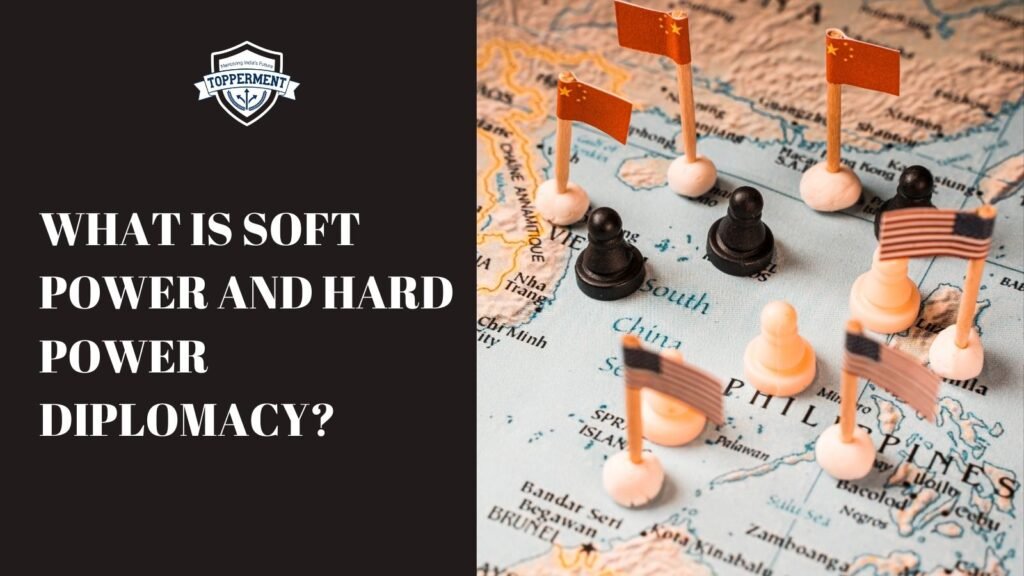Soft Power and Hard Power diplomacy are the major factors for the country’s future and global stand. It is important for the country to know how to utilize them effectively at the right time, and succeed economically, and politically.
Soft power diplomacy is defined as the ability to attract and cooperate in certain situations instead of coercing. Soft power gives importance to others’ preferences through appeal and attraction.
It is a persuasive form of diplomacy that is derived from attraction and emulation. Soft power is grounded on intangible resources such as tourism, culture, and heritage. In simple words, soft power gives us the ability what we want without any major problems. It is only used in some complex situations and helps a nation to achieve difficult situations.
Hard Power diplomacy is something when the country uses military and economic means an influence the behavior of other political bodies. It is a form of political power that is often considered aggressive because it uses coercion. The results of the diplomacy are immediately effective.
Hard power diplomacy is sometimes linked with the possession of tangible resources such as population, territory, natural resources, economic, and military strengths. An example of Hard power diplomacy is Russia’s attack on Ukraine.
Right now India’s current foreign policy is based on soft power diplomacy. But at particular times, India is also using hard power to suit national integrity. It is important to maintain the balance between soft and hard power diplomacy to maintain good relationships with many global power countries.
Also Read
Follow Us For More Content On:
https://www.instagram.com/topperment/
Tag:Diplomacy, Hard Power, IAS, IFS, India, International Relations, IPS, IRS, Russia, Soft Power, Ukraine, UPSC


